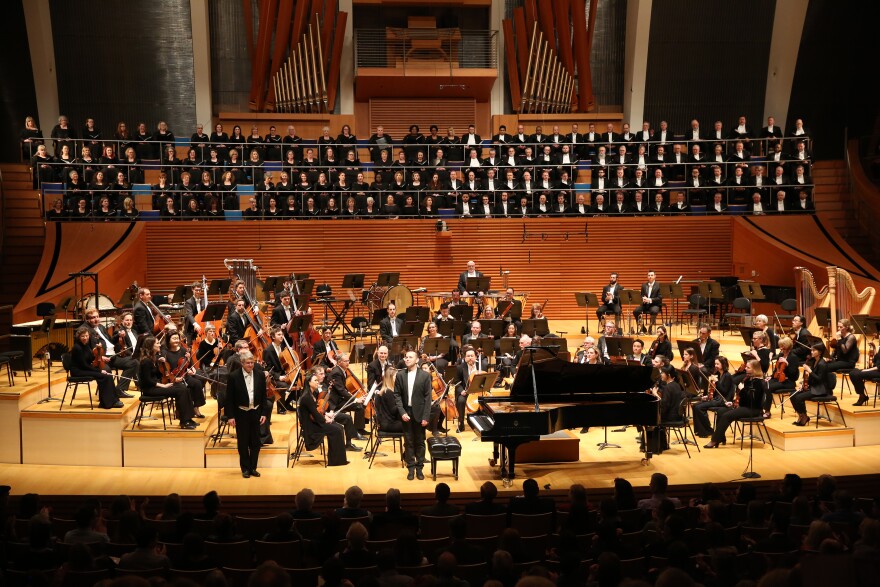Hosts
Michael Stern
Dan Margolies
Program

Symphony in E Minor, VB 141
by Joseph Martin Kraus
Bernard Labadie, guest conductor
Live performance, May 2012
Kraus belongs to a talented cadre of 18th century middle European composers — among them Michael Haydn, the brother of Josef Haydn; Carl Philipp Emanuel Bach, the son of Johann Sebastian Bach; and Carl Ditters von Dittersdorf — whose star was so eclipsed by the two giants of the Classical Era, Haydn and Mozart, that they’re all but forgotten today.
"[Kraus] was among a group of really gifted composers who were overshadowed because when you’re talking about that period of European music, Mozart and Haydn sucked all the oxygen out of the room,” says Michael Stern.
Fantasy in C Minor for Piano, Chorus and Orchestra
by Ludwig van Beethoven
Kansas City Symphony Chorus, Charles Bruffy, director
Eldar Nebolsin, piano
Martin Luther Clark, tenor
Ashley Wheat, soprano
Chris Mosz, tenor
Alice Chung, alto
Laurel Weir, soprano
Rhys Lloyd Talbot, baritone
Live performance, April 2018
This unusually scored piece received its premiere at a now-famous benefit concert led by Beethoven in Vienna in 1808, along with his Fifth and Sixth symphonies, Fourth Piano Concerto, two movements from the Mass in C Major and two concert arias. Rehearsal time was short for the bitterly cold premiere performance, and Beethoven "procrastinated getting the materials for the orchestra finished ahead of time," says Stern, adding, "Let’s face it, he was a disorganized genius."

Symphony No. 2 in E Minor, Op. 27
by Sergei Rachmaninoff
Live performance, June 2017
This work received its premiere in St. Petersburg in 1908, roughly 11 years after the disastrous premiere of Rachmaninoff's First Symphony, which plunged the composer into a deep depression. The Second Symphony, by contrast, was an instant hit and remains firmly anchored in the symphonic repertory.
Rachmaninoff faced criticism for writing an "ineffably romantic" work and looking backwards during the start of the 20th century, but Michael Stern asserts that "his creativity with how he wrote for the orchestra, and the extraordinary variety of creative ideas, thematic ideas and the brilliance of his orchestration need no apology.”
Dance of the Jesters from Snow Maiden
by Peter Tchaikovsky
Live performance, September 2012
Tchaikovsky wrote this music for a play by Alexander Ostrovsky called The Snow Maiden, not to be confused with Rimsky-Korsakov’s opera by the same name, which used the play itself as its libretto.
Michael Stern points out a connection to Rachmaninoff in that the work was dedicated to Sergei Taneyev, one of Tchaikovsky’s pupils. Taneyev later became one of Rachmaninoff’s teachers.








